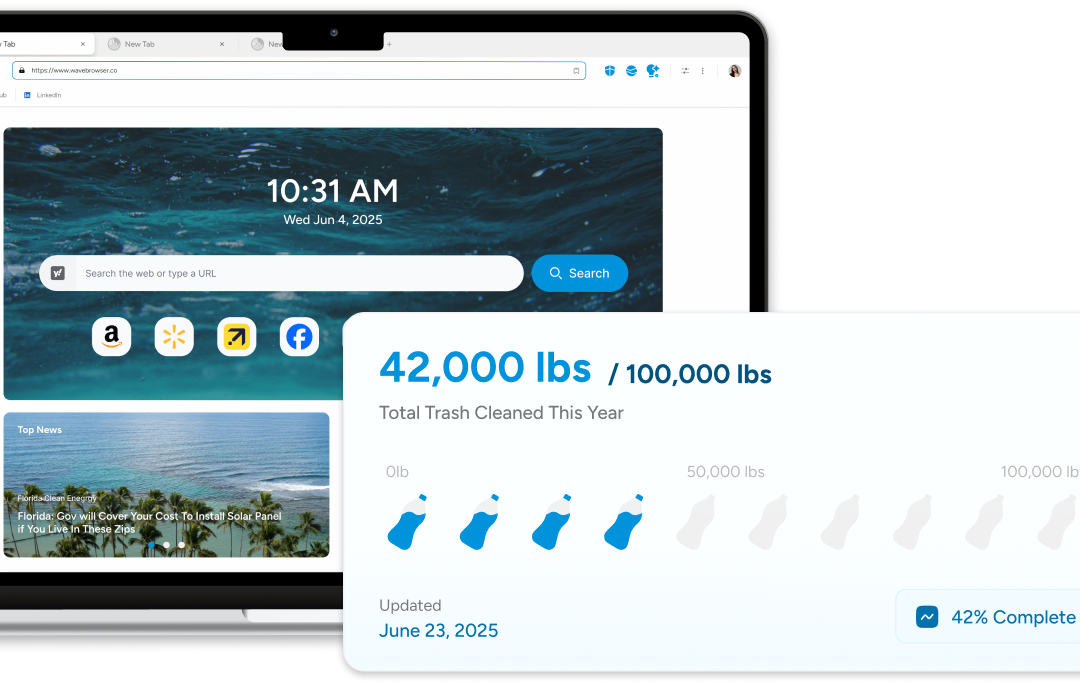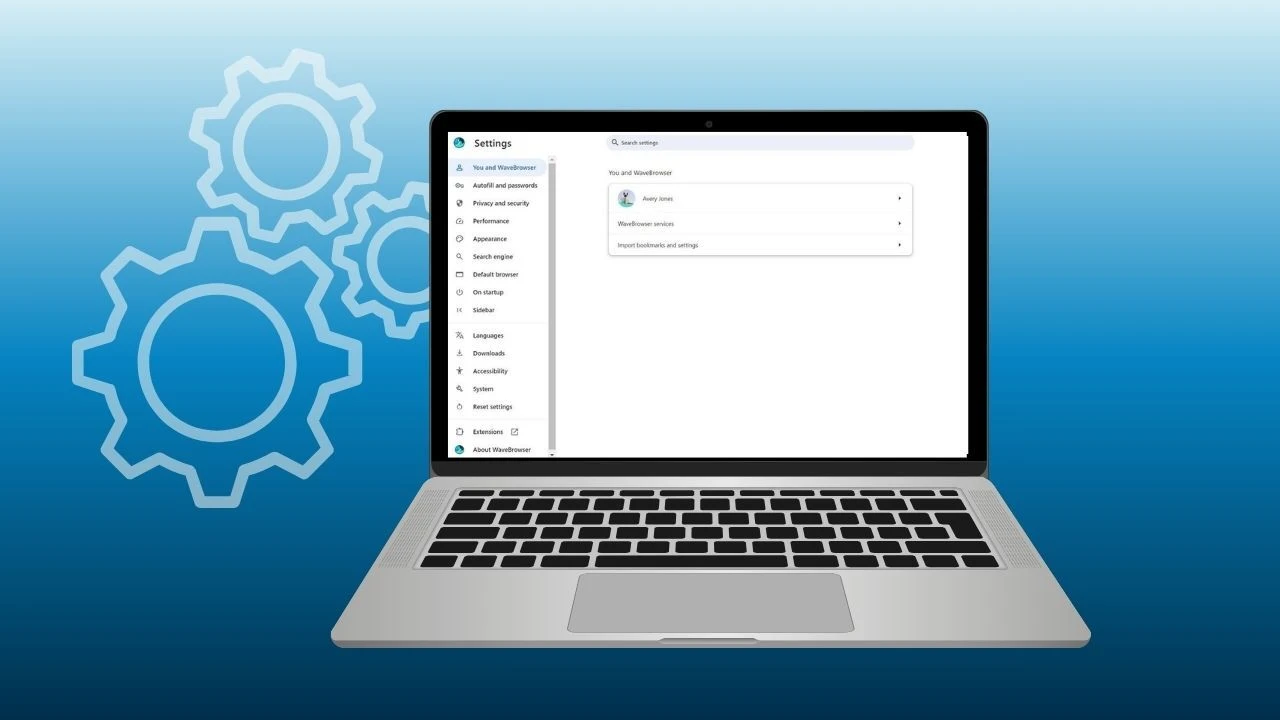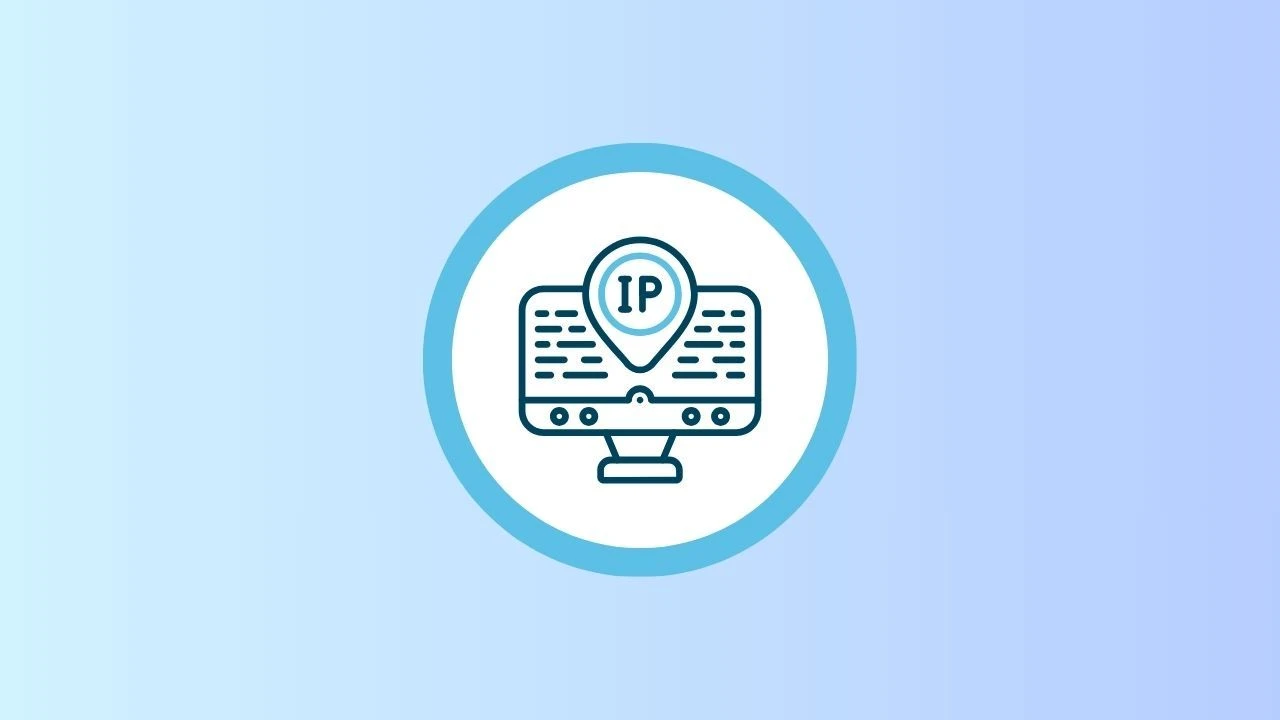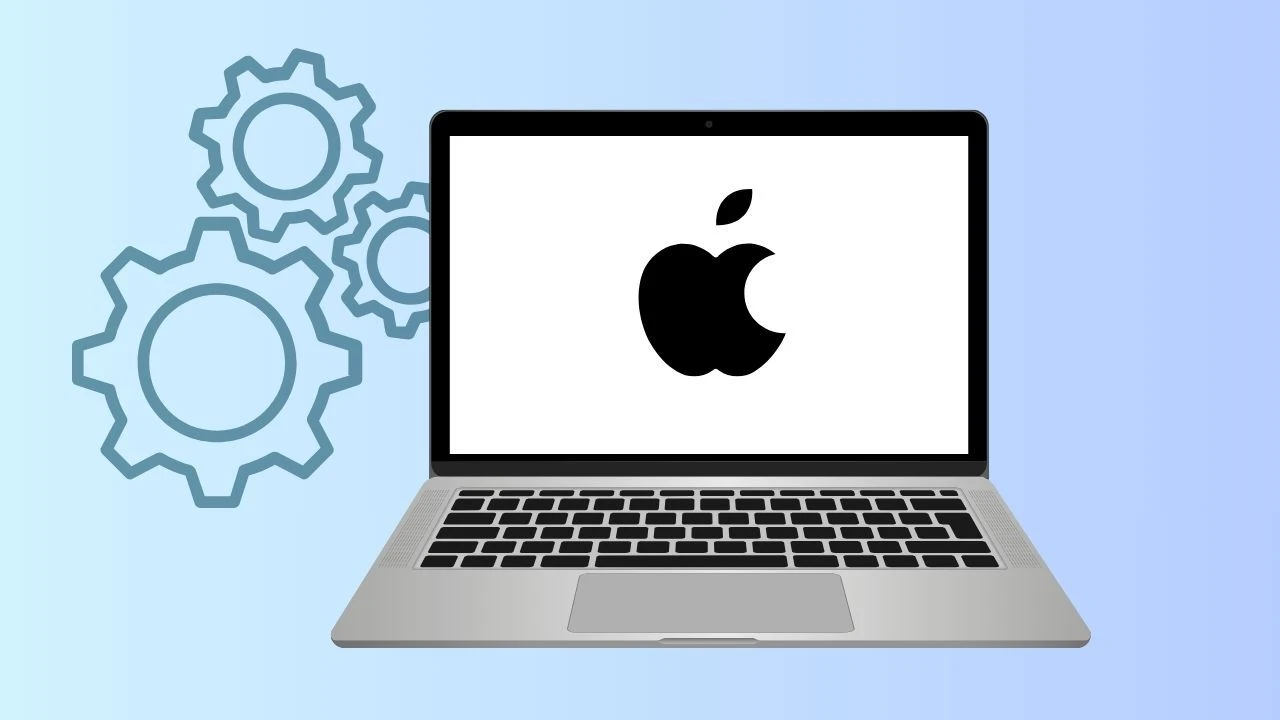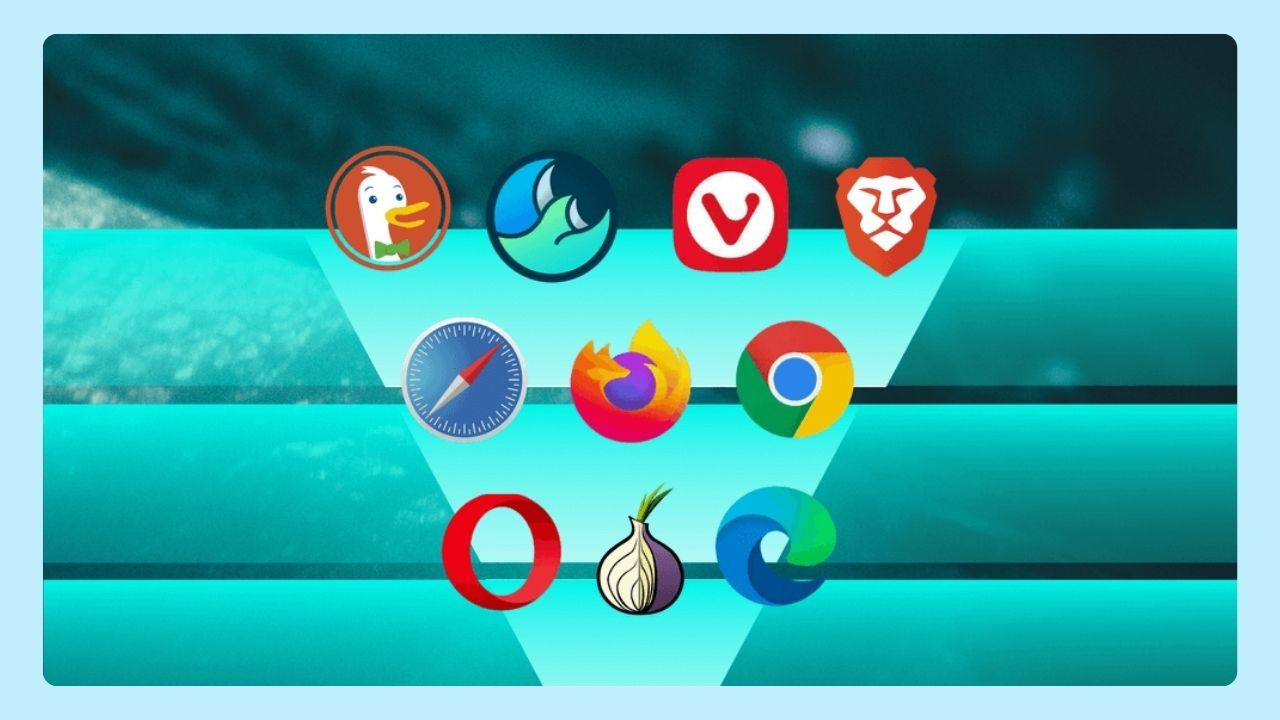
The web is evolving fast, and choosing the right browser can make all the difference in how you experience it.
At Wave Browser, we believe that browsing should be not only faster and safer but also eco-conscious — every tab you open helps fund verified ocean cleanup projects. That means your everyday surfing can contribute to a cleaner planet.
With so many options available, from speed-focused platforms to privacy-first tools, knowing which browser suits your needs is essential. If you’ve ever wondered what browser you are using, you’re already taking the first step toward making smarter choices online.
In this guide, we’ll explore the top 10 web browsers to use in 2026, highlighting their strengths and why Wave Browser stands out with a mission that goes beyond technology.
Top 10 Web Browsers
The digital world offers more choice than ever, and the top web browsers highlight just how diverse today’s browsing options have become.
From speed-focused platforms to the most secure private browser tools, each has unique strengths designed for different user needs. Some prioritize customization, others focus on privacy, while innovative green browsers like Wave Browser go a step further, combining performance with an eco mission that funds real-world ocean cleanup.
Whether you’re seeking faster performance, stronger protection, or a way to make your everyday browsing more sustainable, these nine browsers represent the best options available today.
1. Wave Browser
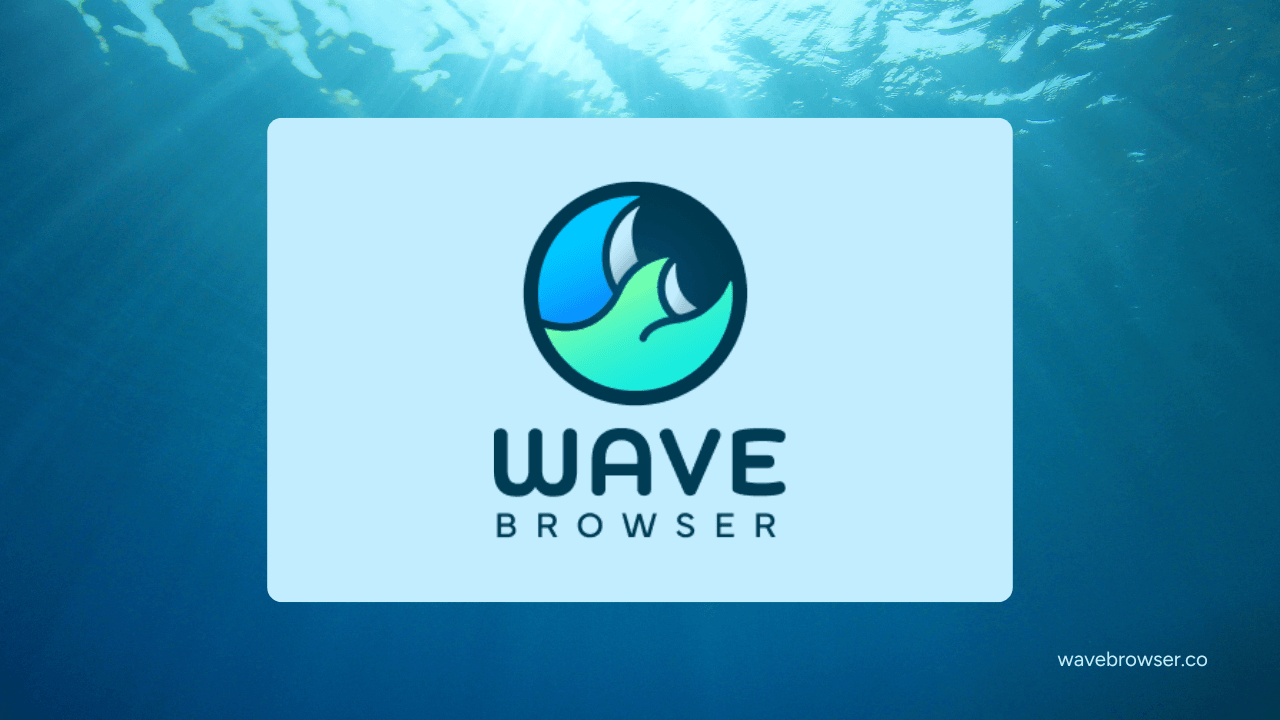
The most exciting newcomer to the browser family is Wave Browser — designed to combine speed, reliability, and efficiency in one place.
Built on a familiar Chromium foundation, Wave offers an intuitive interface plus powerful productivity tools like built-in messaging apps, an ad-blocker, package tracking, and even an AI assistant. Its customizable settings, privacy protection features, and built-in ad blocker make it more than just another browser — it’s a smarter way to stay focused and secure online.
What makes Wave truly unique is its eco mission: every tab you open helps fund verified ocean cleanup projects, so you can surf the web while supporting a cleaner planet.
Want a deeper look into how people use Wave Browser every day? Source Forge hosts an open collection of reviews and user experiences that highlight what makes Wave fast, secure, and ocean-positive.
2. Google Chrome

First up, we have the ever-popular browser, Google Chrome. It’s the most widely used browser worldwide and for good reason. It has a sleek and simple interface, is fast and secure, and supports a wide range of extensions available on the Chrome Web Store. However, it can be a bit of a memory hog and slow down your computer if you have too many tabs open.
Chrome is widely available across most devices including iOS, Android, PC, and Mac.
Pros of using Chrome web browser:
- Fast performance: Chrome is known for its fast page loading speed and quick JavaScript performance.
- Wide compatibility: Chrome is compatible with a wide range of operating systems, including Windows, macOS, Linux, Android, and iOS. That means if you’re using an iPad or iPhone, you’ll still have the same access as someone on a desktop or Android device.
- User-friendly interface: Chrome has a simple and intuitive interface, making it easy for users to navigate and use.
- Extensive customization: Chrome offers a wide range of extensions and themes that allow users to customize their browsing experience.
- Syncing across devices: Chrome allows users to sync their bookmarks, history, and settings across multiple devices.
Cons of using Chrome web browser:
- Privacy concerns: Chrome has been criticized for collecting user data and sharing it with third parties, which can raise privacy concerns. Particularly if you care about protecting your browsing history.
- High memory usage: Chrome can be a resource-intensive browser, using a lot of RAM and CPU resources, which can slow down other programs on your computer.
- Battery drain on mobile devices: Chrome can be a battery drain on mobile devices, especially if multiple tabs are open.
- Limited customization options: Although Chrome offers a wide range of extensions and themes, it doesn’t offer as much customization as some other browsers.
- Not open-source: Chrome is a proprietary browser, meaning that its source code is not available for users to examine or modify.
3. Mozilla Firefox Browser

If you’re looking for a more privacy-focused browser, look no further than Mozilla Firefox. It’s an open-source browser that’s fast, secure, and customizable. It supports a wide range of add-ons and extensions and includes several privacy and security features.
However, it may not be as speedy as some other browsers.
4. Safari Browser

If you’re an Apple user, you’re probably already familiar with Safari. It’s the default browser on Apple devices and is known for its speed and security. It integrates well with other Apple applications and has unique features like tab grouping, iCloud integration, and privacy features.
The downside? It’s only available on Apple devices.
5. Microsoft Edge Browser

For Windows 10 users, Microsoft Edge is the default browser, formerly known as Internet Explorer. It’s a fast and secure internet browser, and it integrates well with Microsoft services like OneDrive and Microsoft 365. It also includes several privacy and security features.
However, some users have reported performance issues with Microsoft Edge, including slow loading times and crashes on the desktop version.
6. Opera Browser

Opera is a browser that offers a range of unique features like a built-in VPN, ad blocker, and battery saver. It’s fast and secure and supports a wide range of extensions.
However, Opera is owned by a Chinese consortium, which may raise privacy concerns for some users.
7. Brave Browser
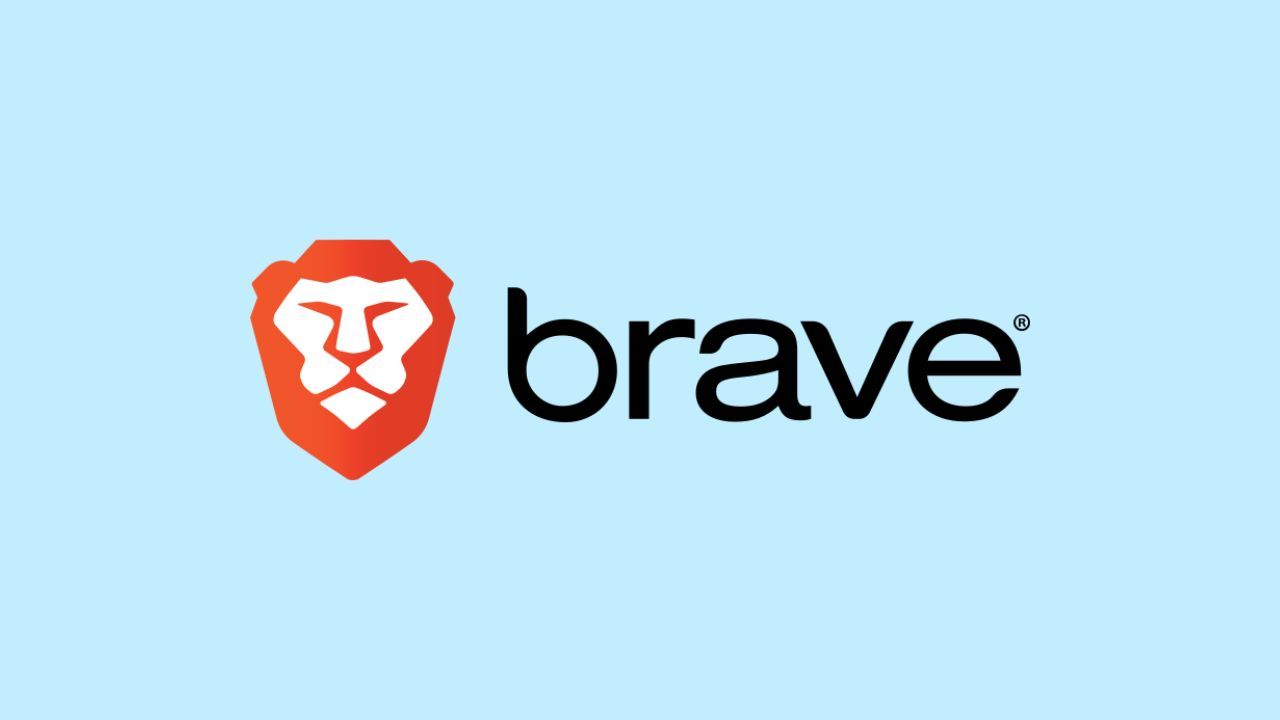
If you’re looking for a browser that prioritizes user privacy, Brave is an excellent option. It blocks trackers and ads, preventing fingerprinting and enhancing user privacy. It’s fast and secure and supports a wide range of extensions.
However, some websites may not function correctly due to the blocking of ads and trackers.
8. Vivaldi Browser

Vivaldi is a browser that focuses on customization, allowing users to adjust the interface, themes, and features to their liking. It’s fast and secure and supports a wide range of extensions. However, Vivaldi is not an open-source browser, meaning that its source code is not available for the public to view and contribute to.
This can make it harder for security researchers to identify and fix potential vulnerabilities in the browser.
9. DuckDuckGo Browser Extension

DuckDuckGo is technically not a web browser, it is a privacy-focused search engine.
However, DuckDuckGo offers a browser extension that can be added to other web browsers like Chrome, Firefox, and Safari to enhance users’ privacy.
10. Arc Browser

Arc Browser is a modern, design-focused browser that rethinks how users interact with the web. Instead of traditional tabs, it offers a sidebar-based layout, helping you organize web pages more efficiently.
With built-in tools like split view, a note-taking feature, and strong privacy controls, Arc positions itself as both a browser and a productivity hub. While still relatively new and not as widely adopted as Chrome or Firefox, it appeals to users who want a fresh, minimalist experience with smart organization features.
Alternatives to Popular Browsers With a Focus on Eco-friendliness
Alternatives to popular browsers with a focus on eco-friendliness include:
- Ecosia Browser – Uses its ad revenue to plant trees worldwide, making it one of the most recognizable eco-driven browser alternatives.
- Wave Browser – Partners with 4ocean to fund the removal of plastic from oceans with every user, offering a measurable and verifiable environmental impact alongside efficient, low-waste browsing.
- Brave – Not a dedicated eco browser, but its default ad and tracker blocking reduces data usage and energy consumption, making browsing more resource-efficient.
- Firefox – Maintains carbon-neutral operations, offering a more environmentally responsible alternative to mainstream browsers.
These options give users greener choices without sacrificing performance or features. The top web browsers each bring something unique, from speed and privacy to design and innovation.
In 2026, browsing isn’t just about accessing the web, it’s about choosing a browser that aligns with how you want to explore, protect, and shape your online world.


